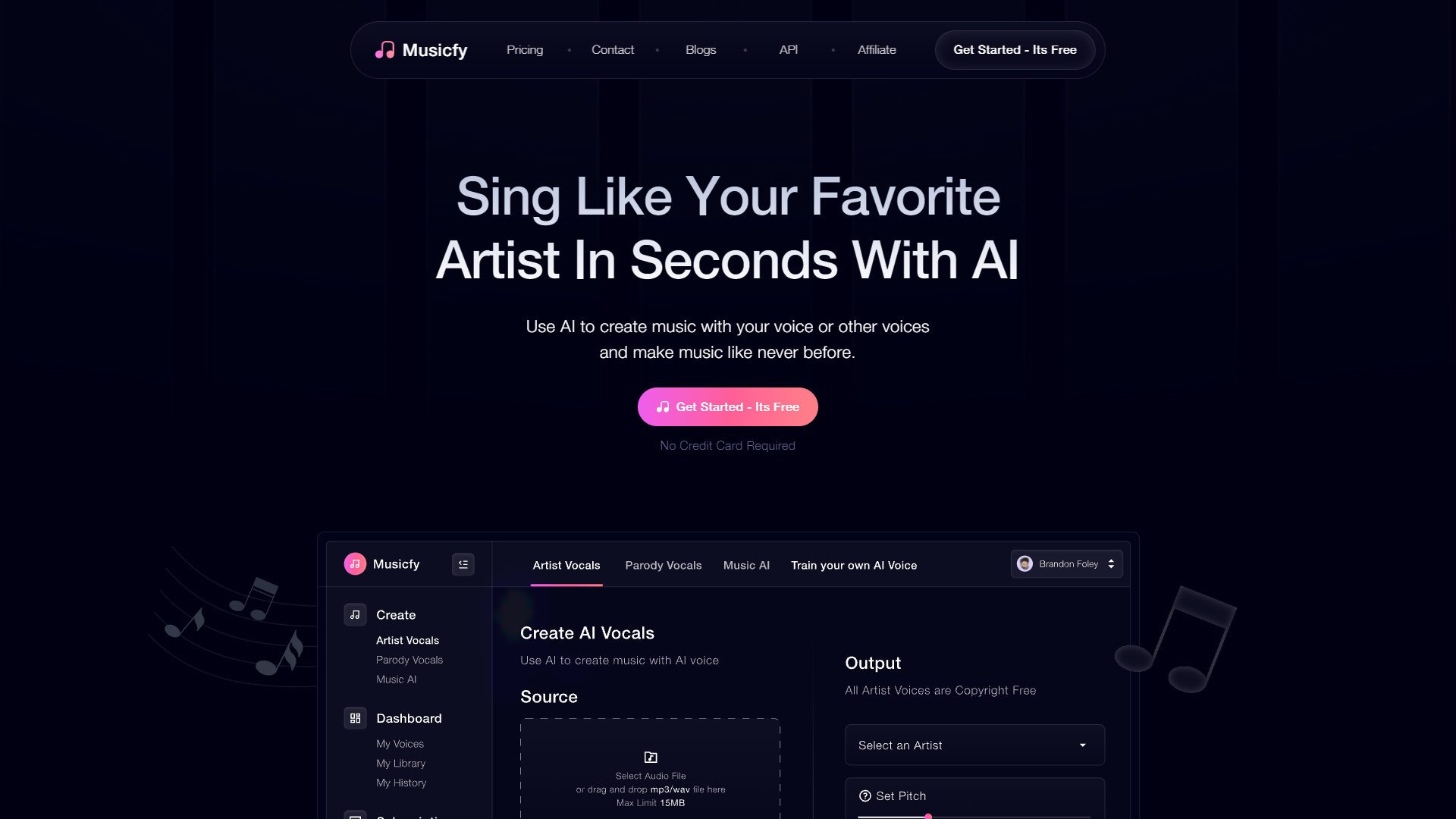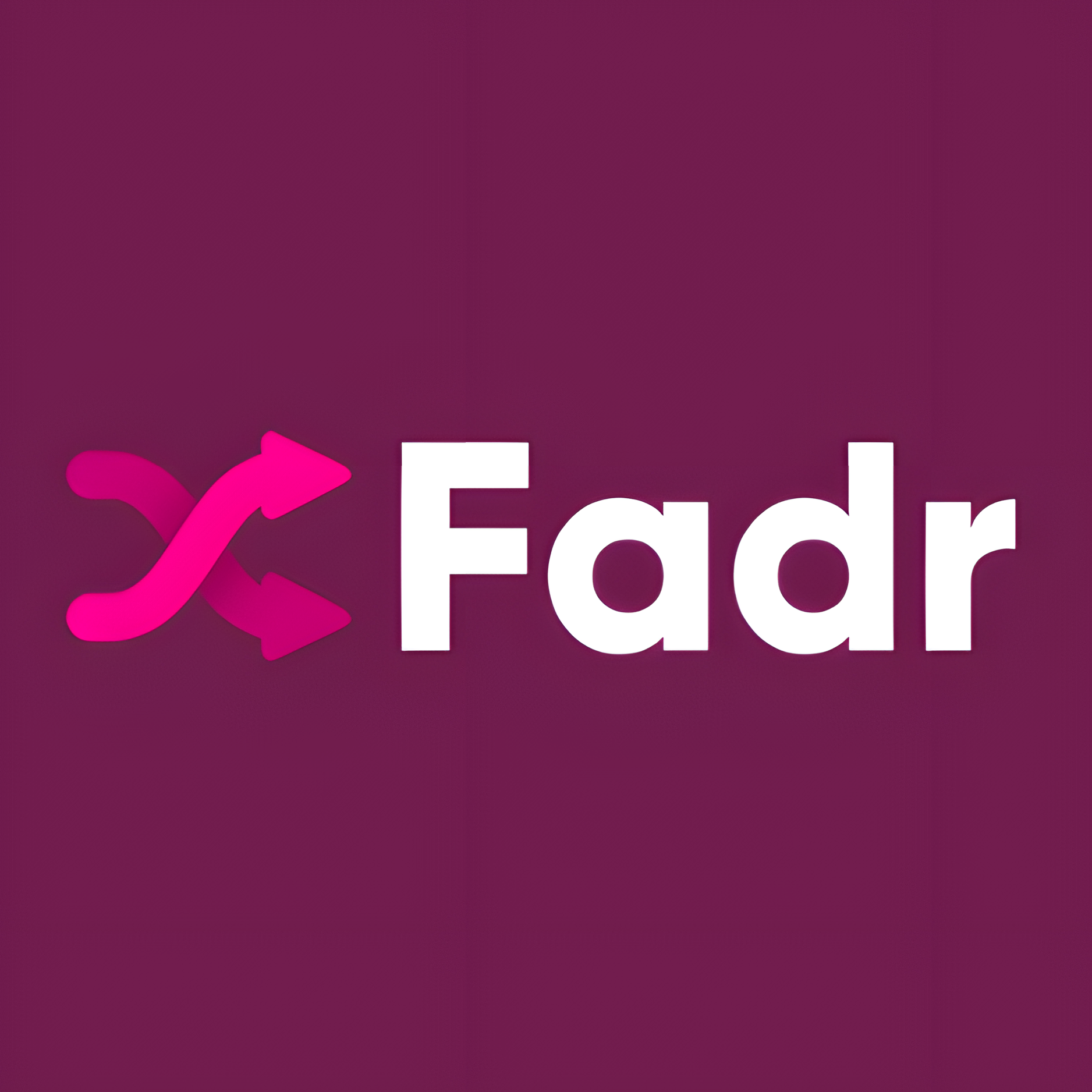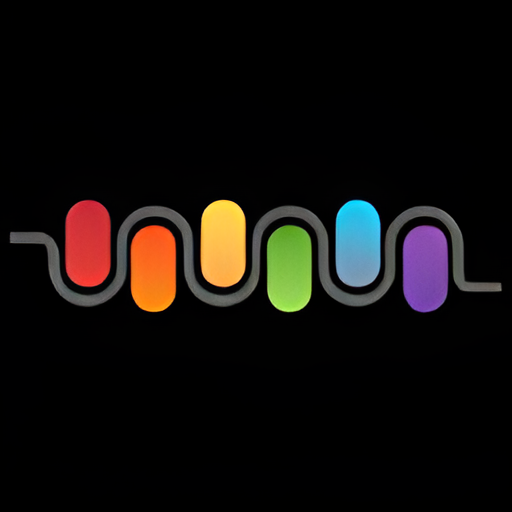Overview
Musicfy is a cutting-edge AI music tool designed to transform the way music is produced. By integrating advanced artificial intelligence technologies, Musicfy enables users to generate music using their own voice or select from a range of copyright-free vocals. One of its standout features is the ability to create a personalized AI model that can mimic a user's voice, offering unique opportunities for customization and creativity.
The platform also includes tools such as stem splitters and text-to-music conversion, which simplify the music creation process and expand the possibilities for musical expression. Additionally, users can experiment with parody voices, adding a fun and innovative twist to their creations. Musicfy is celebrated for its user-friendly interface, which makes it accessible to both beginners and experienced producers, allowing them to transform their musical ideas into reality effortlessly.
Feedback from a diverse range of users, including artists, producers, and music enthusiasts, underscores Musicfy's role as a game-changer in the music industry. The tool not only speeds up the production process but also democratizes music creation, making it more enjoyable and less constrained by traditional barriers. Musicfy is reshaping the music landscape, enabling anyone to explore new sounds and genres and unleash their creative potential.
Key features
- Voice-driven music creation: Users can generate music using their own voice or select from a variety of AI-generated voices, simplifying the song creation process.
- Copyright-free vocals: Access an extensive library of unique, copyright-free vocals to enhance music projects without legal concerns.
- Custom AI voice modeling: Create personalized AI models that can mimic the user's voice, offering a unique tool for song production and vocal effects.
- Stem splitting technology: Easily separate audio tracks into individual components, such as vocals and instruments, for detailed editing and mixing.
- Text-to-music conversion: Convert written lyrics or text into complete musical compositions using advanced AI algorithms, streamlining songwriting.
- Parody voice generator: Experiment with parody voices to add humor or distinctive character to music, expanding creative expression.
 Pros
Pros
- Real-time collaboration: Enable multiple users to work on the same project simultaneously from different locations, enhancing teamwork and creativity.
- Adaptive soundscapes: Automatically adjust musical elements like tempo and harmony to fit the mood or genre specified by the user, ensuring a cohesive output.
- Advanced sound filters: Apply cutting-edge filters to enhance audio quality or create unique sound effects, elevating the production value of music projects.
- Seamless integration: Easily connect with popular music production software and platforms, facilitating a smoother workflow and broader compatibility.
- Interactive tutorials: Offer guided lessons on music production techniques and tool usage, making it accessible for beginners and professionals alike.
 Cons
Cons
- Voice authenticity issues: While AI voice modeling is innovative, it may not perfectly capture the emotional nuances of a human singer, potentially affecting the emotional depth of songs.
- Complex user interface: The advanced features like stem splitting and text-to-music conversion can be overwhelming for beginners, requiring a steep learning curve.
- Limited genre versatility: The AI-generated music and voices might not adequately cover all musical genres, particularly those with complex rhythms or cultural nuances.
- Over-reliance on AI: Heavy reliance on AI for music creation might hinder the development of personal creativity and originality in music composition.
- Parody voice limitations: The parody voice generator, while creative, may not always produce voices that resonate well with all types of humor or musical styles.

















